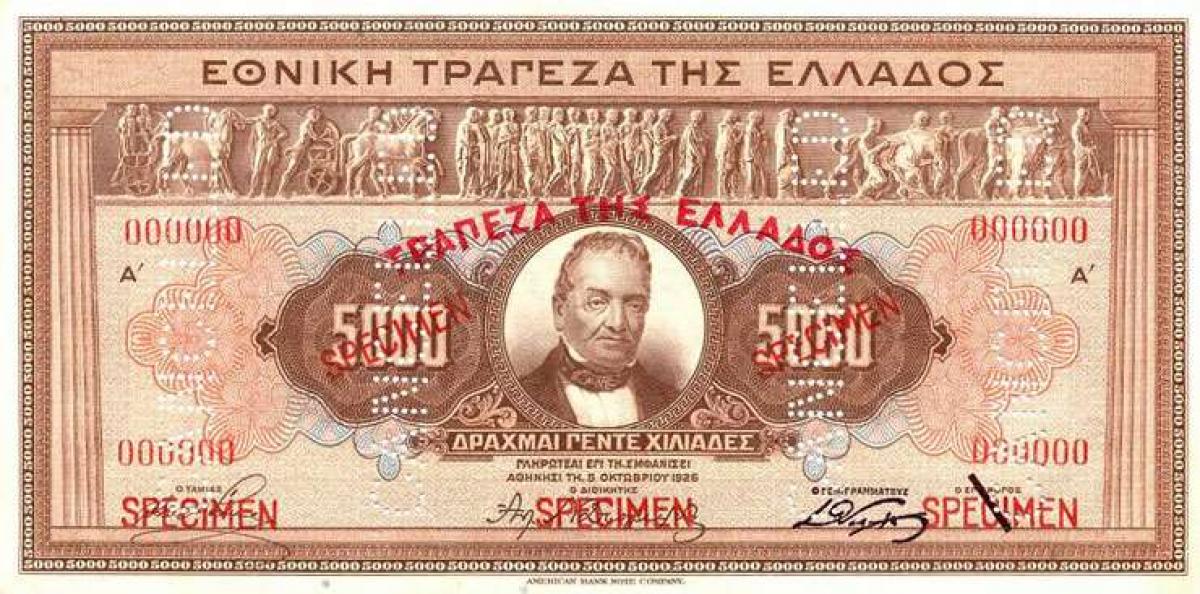A former finance minister of the Republic of Greece has published a book, Game Over, on what it is like to be in the midst of a continent-wide political and financial crisis. This is a volume that might be read with attention by those who seek alpha from distressed sovereign debt, in Europe and elsewhere.
George Papaconstantinou, armed with a Ph.D. in economics from the London School of Economics and experience at the Organization for Economic Cooperation and Development, took the job of finance minister in the newly formed government of George Papandreou and the Panhellenic Socialist Movement (PASOK) in 2009.
Much of this book is about the infamous “Lagarde list,” a list of names of possible tax cheats with money in secret Swiss bank accounts that Papaconstantinou received from his French counterpart in 2010. Later accusations that he had deleted names of relatives of his from this list before passing it on to his successors in office in June 2011 led to a sensational trial in 2015, and a mixed verdict. He denied and continues to deny that he did any such thing. He was acquitted of the felony charge, convicted of a misdemeanor, and given a suspended sentence. He walked out of the courtroom a free man, and he takes this as a vindication, a full acquittal in all but name.
Other Chunks of the Book
Much of this book, too, is devoted to the usual former-statesman stuff: pointing with pride to various accomplishments and encomiums. In late 2010, one policy analyst polled by the Financial Times said, “My vote for finance minister of the year goes to Greece’ Papaconstantinou … if his economy begins to recover in 2011, he could emerge as next year’s star.” Well, as the recipient of that praise writes, “it was not to be.” But it must have been satisfying to read.
In late 2010, the Greek government was pushing a narrative. The narrative was that nasty greedy speculators were to blame for the troubles of the “periphery” of Europe, including Spain and Italy as well as Greece. The speculative pressure would never relax until there existed what Papaconstantinou calls “a risk-sharing mechanism, some kind of debt mutualization, amongst EU countries.”
But for most readers of AllAboutAlpha, the more intriguing parts of Game Over will be those that discuss the tension between the northern and southern tiers of the Eurozone, and the way they are reflected in the political tensions within Greece. For Papaconstantinou was perfectly aware that the “narrative” blaming speculators was at best a one-sided one. As he puts it, 2010 was simply “a year in which Greece’s long-standing problems had caught up with her and demanded unprecedented and painful solutions.”
One of those long-standing problems is that the rest of the country’s government didn’t trust the tax enforcement authorities. That is why, after all, Papaconstantinou couldn’t simply hand the Lagarde list over to the Economic Crimes Enforcement Agency (SDOE). That agency was below him in the chain of command, but … he thought that the officials there were incapable of keeping secrets, first, and that they were all too capable of using such information to set up privatized blackmail rackets, second.
In a country with well-functioning institutions, Papaconstantinou writes, such a list “would be handed to the relevant tax people, would be kept confidential, and an investigation would ensue.” But this was Greece.
Indeed it was, and still is
Another long-standing problem in Greece is a deep-seated cultural aversion to the privatization of assets, as indicated by the title of one of this book’s chapters, “Selling the Family Silver.” The country’s creditors in the rest of Europe, expressing themselves through the infamous “Troika” of international organizations, demanded privatization.
The aversion to any such measure was strong in the Center-Left, although it could be overcome there with effort. Thus, PASOK governments even before Papaconstantinou’s tenure had done some privatizing, usually in a way that entailed “stock market listings and gradual share sales, without the state ceding overall control” as he puts it. In this situation, the family “silver” could be both sold and kept within the household.
It was the New Democracy Party (on the center right, in Greek terms) that was pressing hardest for more sweeping privatizations during the period discussed in this book. New Democracy saw it as a way of achieving greater revenues without pain, thus of satisfying the “Troika” without giving in to budget austerity. This fact gave Papaconstantinou some ammunition as he tried to sell his PASOK colleagues on broader privatization. “At least we seemed to be safe from the main opposition accusing us of selling out the country,” as he writes, paraphrasing the argument he was making within the cabinet.
But he lost that argument, as the government issued a sweeping rejection of the privatization demands that were coming from the Troika, demands which Papaconstantinou had tried to accommodate. This issue led to a crack in his relationship with the PM, and ultimately to the cabinet re-shuffle that saw his departure from the finance ministry.
All in all, this book is a valuable contribution to the growing literature on the subjects with which it deals, and satisfyingly analytic given the memoiristic format.




